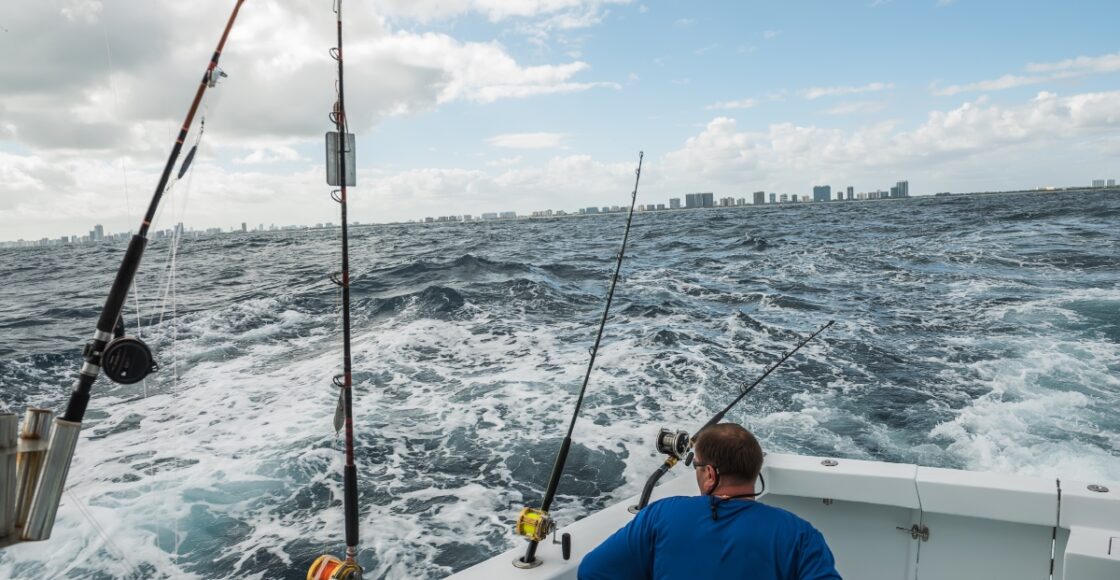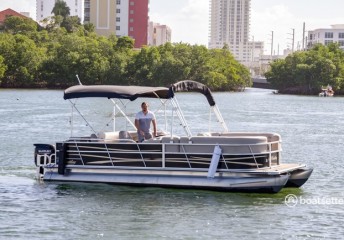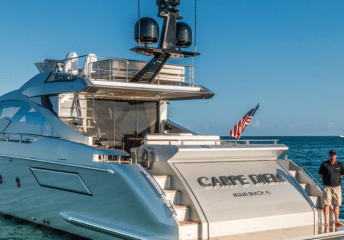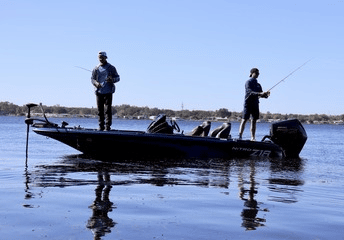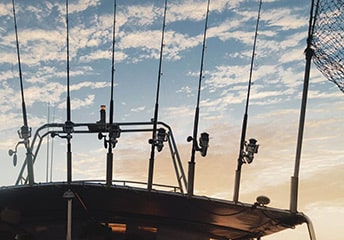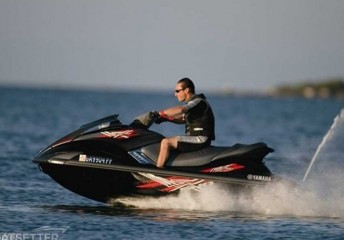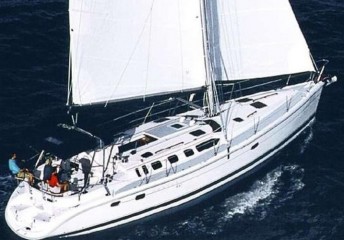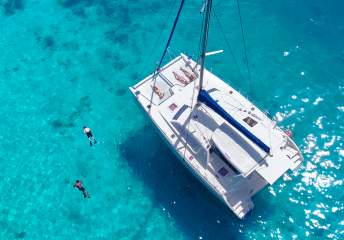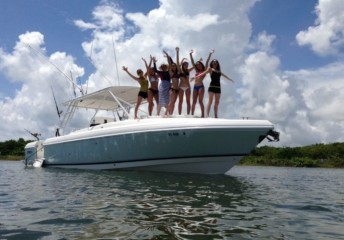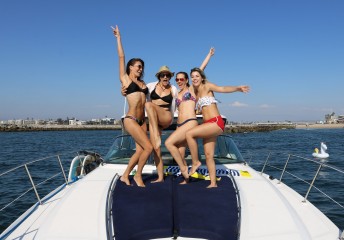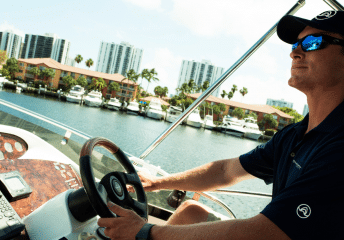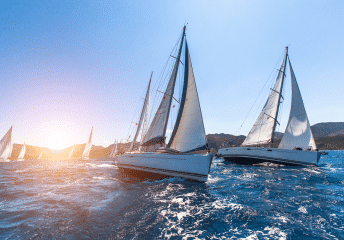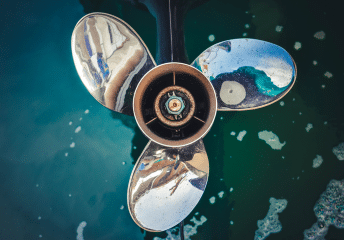How Does Wind Affect Fishing
Last Updated on June 20, 2024 by Boatsetter Team
Wind can play a huge role in whether you catch fish or go home empty-handed. Anglers are always at the mercy of the weather, and wind is a huge part of the equation. In fact, often it’s the biggest factor of all. You can catch fish in the rain, fog, and even the snow, but gusty winds can make the day downright un-fishable.
How wind affects fishing from a boat
Strong winds churn the seas, and may make it impossible to go fishing in the first place. Runs to and from the fishing grounds can be made miserable, but even if you tough it out, you may discover that the gusts cause the boat drift too fast to get your offerings down to the fish. All the rocking and rolling can spill bait buckets, upset tackleboxes, and make it nearly impossible to so much as tie a knot. And strong gusts can make a bow in your line, so there’s slack and you can’t feel the bites. Trolling can get messy, too, especially in a cross-breeze, because as the wind shoves your lines, it can cause tangles.
On top of all these issues, when the wind is blowing strong enough to generate big waves, going out on a boat, especially a small boat, can become downright dangerous. So it’s always critical to check the wind forecast before you rent a fishing boat for the day or head for the ramp with your own boat in tow.
Explore local fishing boat rentals
How wind affects fishing from shore
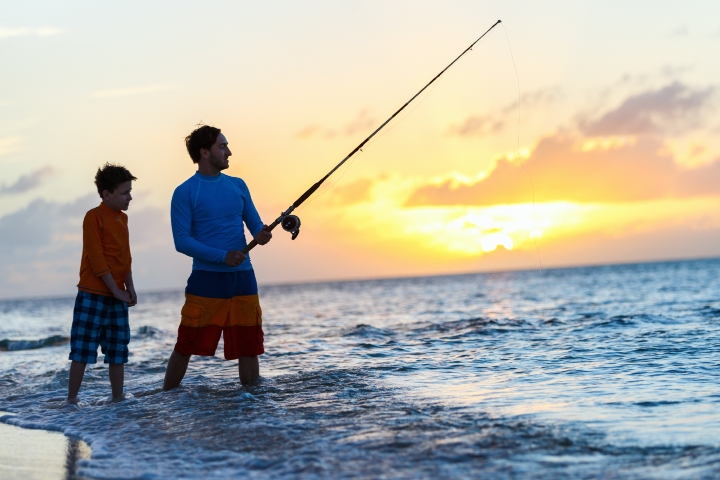
If you’re casting from the banks of a lake or river waves probably won’t be an issue, but the wind still may be problematic. If it’s in your face your casting distance can be curtailed, sometimes significantly. Fishing with a bobber may be ineffective because it gets blown right back to shore. And as with being on a boat, when strong winds cause a bow in the line it’s difficult if not impossible to feel the bites and know when to set the hook.
Cross winds and a breeze from your back may be problematic, too. Casting accuracy will be affected, but a bigger problem will likely be tangles and snags. Along most shorelines you’ll find plenty of sticks, logs, rocks, and other snaggy items. With the wind whipping your line around uncontrollably, it will usually find one or more of those things and get tangled up.
Despite these issues, there is one bright side to strong winds when they’re blowing from directly behind: if you’re trying to make long casts you’ll get a helping hand. And if you’re fishing with a bobber sometimes you can flip it out and let it drift right into the target zone. Added bonus: the waves generated by the wind will make your bobber dance, adding some action to your offering.
How wind affects fish
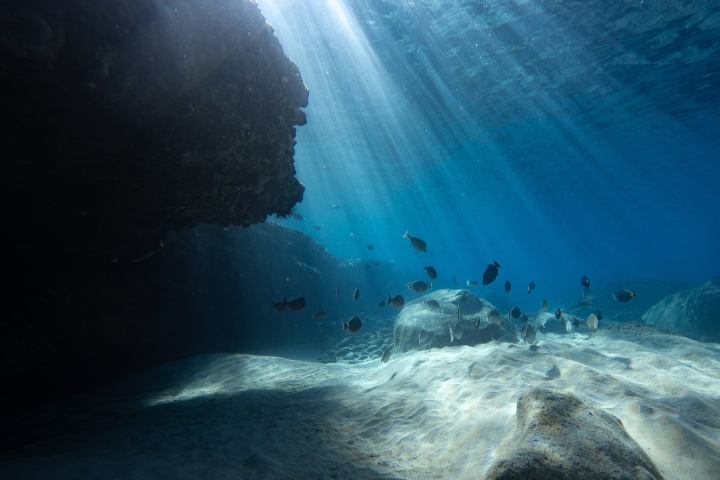
So far all the things we’ve discussed relate to how the wind affects fishing, but that breeze also affects the fish. Actually, it isn’t the wind itself, but the atmospheric pressure changes that generally triggers that breeze. It’s a bit dangerous to make blanket statements on this topic because different species of fish and fish living in different environments are affected differently by pressure changes, but that said, as a general rule of thumb big changes in pressure can disrupt the fish’s feeding patterns.
Increasing pressure will cause some fish to swim down to the bottom and cease feeding. Dropping pressure can cause tiny sediments to rise, clouding the water. Conversely, there will be times when these changes trigger a feeding frenzy.
Much has been written about the effect of pressure changes on fish, but there’s very little science to back it up and most anecdotal evidence is of little value beyond observations regarding a specific species of fish in a specific body of water. Truth be told, we humans just don’t know exactly how or why fish react to pressure changes. What we do know is that during stretches of calm, consistent pressure, fish often fall into predictable feeding behaviors that make it easier to figure out their patterns.
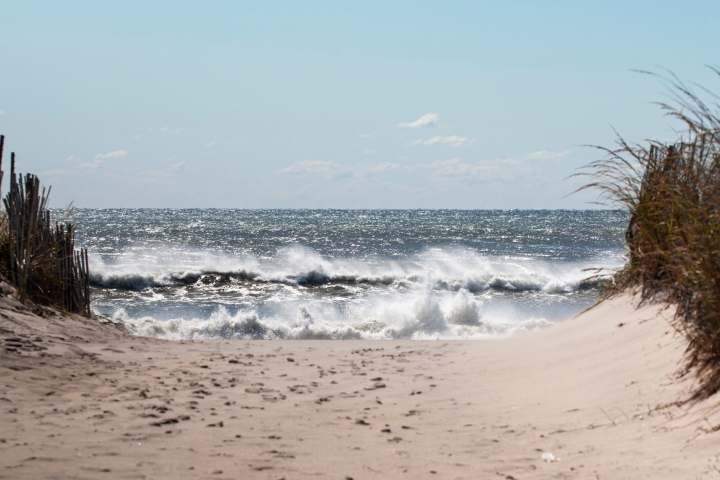
Strong winds and the weather changes that come with it aren’t all bad, however. Sometimes you can use it to your advantage by looking for shorelines with points or coves being hit by wind-driven waves. Small baitfish can be pushed up against such shorelines by the waves, and when this happens the predators we anglers want to catch won’t be far behind.
In some bodies of water wind-driven waves can also boost the oxygen content, causing the fish to become more active. And wind-driven waves that crash on a shoreline or beach can stir up and expose small critters living there, which attracts larger fish to move in and hunt.
All in all wind is both a curse and a blessing to an angler. We’d like to have just enough but not too much, but of course, all we can do is cross our fingers and hope for the best.
Boatsetter is the leading online marketplace for boat rentals and on-water experiences. Download the Boatsetter app (App Store | Google Play) and follow us on Instagram.
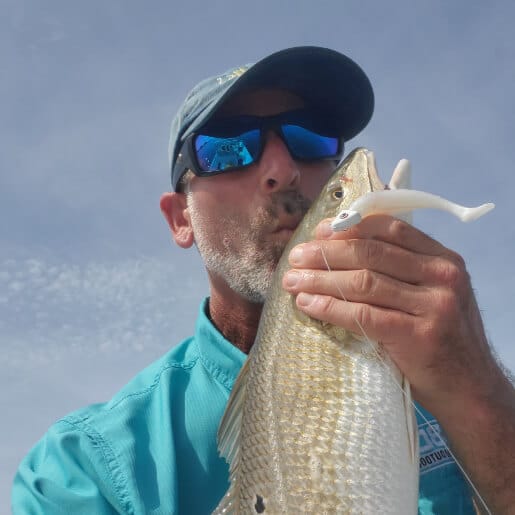
With over three decades of experience in marine journalism, Lenny Rudow has contributed to dozens of boating and fishing publications and websites ranging from BoatU.S. Magazine to BDOutdoors.com. Rudow is currently the Angler in Chief at Rudow’s FishTalk, he is a past president of Boating Writers International (BWI), a graduate of the Westlawn School of Yacht Design, and has won numerous BWI and OWAA writing awards.
